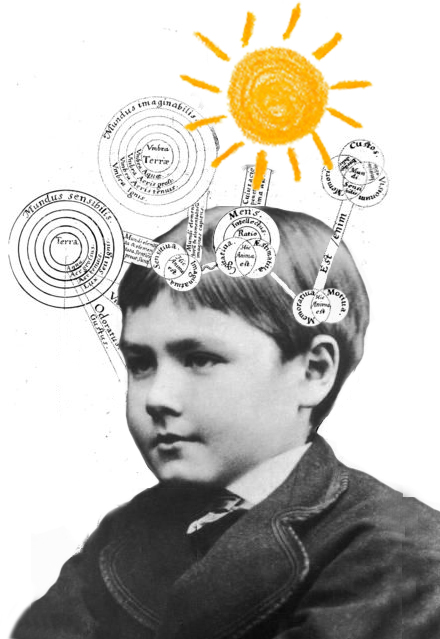Metaphorcast for 7/26-8/1
Listen to this episode here
Any parent with a child over three is very familiar with the world’s shortest question: “why?”
As Mercury moves into Leo this week, we shall ponder the mind of the child. Why? Because they see things from a very special place.
Antoine de Saint-Exupery was born when Mercury was in Leo. His classic, The Little Prince deals largely with the nature of grown-ups, and their inability to perceive “important things”. The narration comes from a pilot whose aircraft has crashed in the Sahara. He meets a little boy with “golden curls’”’ and a “loveable laugh” who asks questions again and again until they are answered. Saint-Exupery draws much from his experience. An aircraft pilot himself, he also crashed in the Sahara and nearly died of dehydration. As a young boy he was nicknamed “The Sun King” because of his golden curls. When in the Sahara he saw a desert sand fox who likely inspired the character who delivers the key moral message to the story: “Important things can only be seen with the heart, not the eyes.”
Perspective of distance makes the eye the center of one’s world. Seeing with the heart seems to imply a different kind of perspective; one that puts the heart, not the eye, at the center. A perspective where the truly essential stands out; a world of essences.
Perhaps even more importantly, seeing with the heart implies a spirited energy to attempt to better know one’s world, and one’s place in it; an attempt to connect experience with what you see.
This is something that children seem born to do.
In a fabulous 4 part series from 1972, art critic John Berger sits around with some children, all around the age of 10. He shows them a painting by Caravaggio which depicts an androgenous figure that looks a bit like Jesus in the center. In the group, nearly all the boys thought this figure was a man and nearly all the girls thought the figure to be a woman. He says this is because children look at images and connect them “directly with their own experiences.”
The perception of adults, in contrast, is “less spontaneous than we tend to believe” as a “large part of it depends on habit and convention.”
In Plato’s Symposium, it was habit and convention that caused people to call the young Apollodorus “crazed”, because he devoted himself so wholeheartedly to Socrates and to philosophy. The enthusiastic youth went about saying he was “happy beyond all measure” as long as he could talk or listen to philosophy. When Socrates drank the hemlock, Apollodorus was the only one present who burst into tears, a detail which suggested this character might represent Plato himself.
Habit and convention has made a mess of these adults who see Apollodorus as foolish. They are blind to the most basic vision; that of the heart.
The name Apollodorus may serve as another clue to heart-vision. Above the Greek God Apollo’s Temple of Delphi read the words “Know Thyself”, and “dorus” is Greek for “gift”. The name Apollodorus may point to a spirited gift of asking “why” in order to gain more and more perspective and truly know oneself and the surrounding world.
The child’s “why” reveals a world beyond the trees, beyond the country, beyond the sea, beyond the sky. With each “why” a wider perspective is gained. At the same time, a deeper and more intimate understanding of one’s place in the world comes as the heart gets more and more centered. And because the world stretches beyond our planet and in many ways, beyond the realm answerable by science, not to mention the infinite inner realities of feelings and dreams, the shortest question in the world will never be answered in full.
Finally, as these stories tell us, heart vision is what the artist uses to turn experience into poetry.
Each story, painting, song, discovery and poem added to the world waits for the right hungry heart to use it and gain perspective.
As Carl Sagan said, “The cosmos is within us. We are made of star-stuff. We are a way for the universe to know itself.”
The next time you hear a child ask why, think of the gift of Apollo, and see if you can feel the distant stars within searching for an answer.
As always, happy astro pondering!

